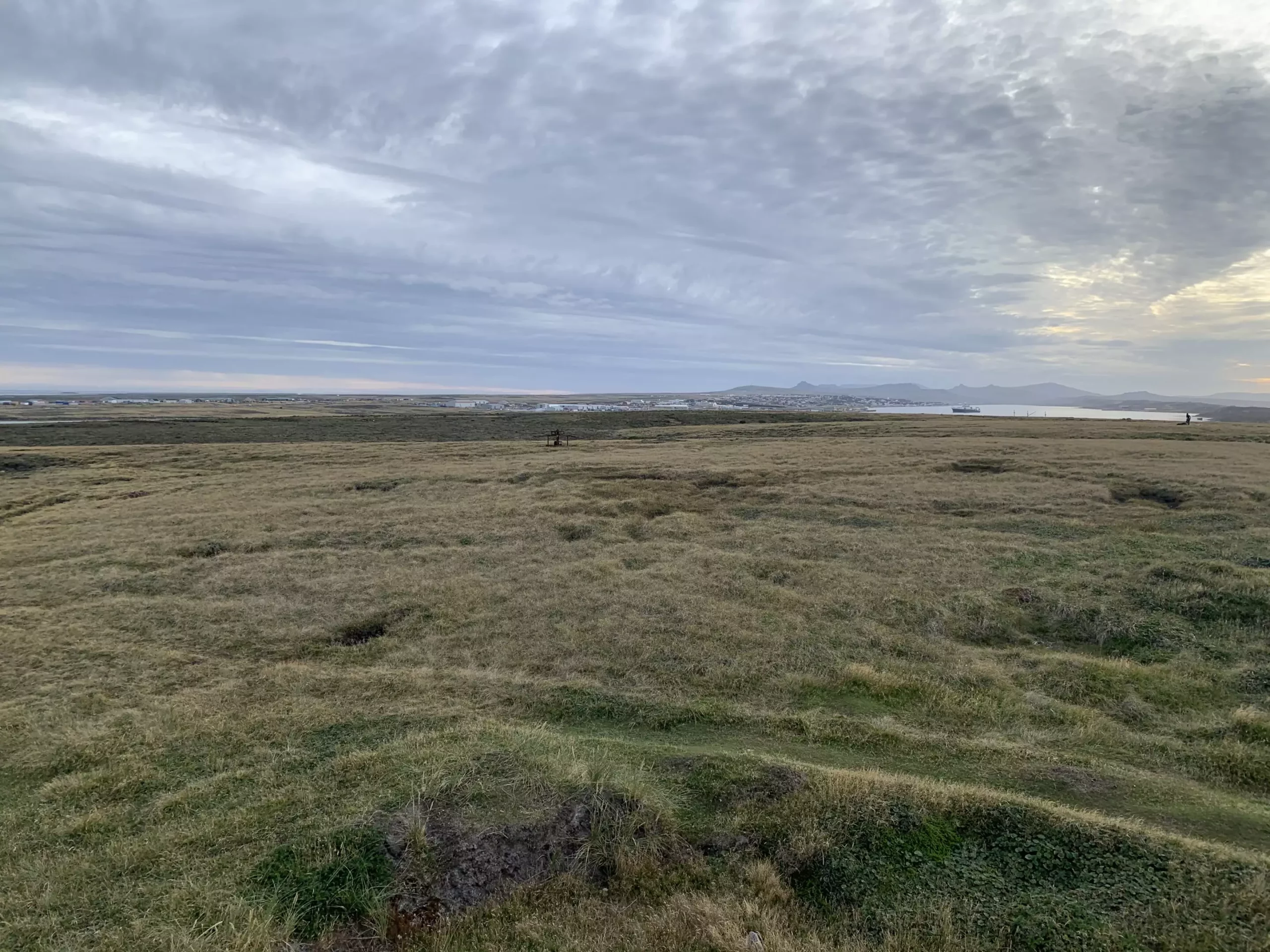Recent research led by Dr. Zoë Thomas from the University of Southampton has uncovered fascinating evidence that the Falkland Islands, known today for their rugged landscapes and treeless vistas, were once draped in lush, diverse rainforests. This groundbreaking study, published in the journal Antarctic Science, reveals that up to 30 million years ago, the archipelago was a vibrant woodland, reminiscent of the rainforests in Tierra del Fuego, located at the southern tip of South America.
The expedition was not born from a preconceived desire to study the islands’ ecological history, but rather through serendipitous conversations within the tightly-knit community of Port Stanley, the archipelago’s capital. A chance remark from a local researcher prompted Dr. Thomas and her team to investigate a construction site, where builders had unearthed large, well-preserved tree trunks and branches embedded in a thick layer of peat. The implications of such a find were profound, raising questions about the ecological history of an area that has not harbored trees for millions of years due to its harsh climate.
The intrigue surrounding the discovery led the researchers to collect samples from the peat layers at the site, known as Tussac House, precisely situated near Stanley Harbour. Understanding the age and nature of the wood was no simple task; preliminary attempts at radiocarbon dating yielded inconclusive results because the tree remains were deemed too old for accurate measurement. Instead, the team turned to pollen analysis, which provided a more reliable window into the past.
Pollen from different plant species that had been compacted within the same layers of peat as the wood offered a clearer timeline, establishing that these remains dated back to an era known for its rich biodiversity. This evidence suggests that the ancient forest was part of a larger network of ecosystems stretching across the southern hemisphere, nourished by a climate drastically different than what the Falkland Islands experience today.
Fossil records indicate that the climate of the South Atlantic was significantly warmer and more humid millions of years ago, conditions conducive to supporting rainforest ecosystems. While perhaps not as vibrant as the Amazon rainforest, the flora of the ancient Falklands would have contributed to a complex and rich ecosystem, making it an outlier in today’s cold and windswept landscape.
The research illustrates how ancient ecosystems can be profoundly influenced by climate—a factor that worked against the survival of the rainforests on the Falklands. The eventual shift towards colder, dryer conditions likely resulted in a transition from lush woodlands to the predominantly treeless tundra we see today, raising significant questions about resilience and adaptation in the face of climate change.
Dr. Thomas’s findings highlight the vital role of community engagement in scientific discovery. Without the insight shared by the locals in Port Stanley, the pristine samples of the ancient rainforest might have remained untouched, buried deep beneath layers of soil. The collaborative relationship between scientists and islanders offers a model for future research endeavors, suggesting that open communication can yield valuable insights that might otherwise go unnoticed.
Dr. Thomas expressed her gratitude for the community’s willingness to share information, recognizing that it played a crucial role in uncovering the historical significance of the site. The process of collaboration turned what could have been a routine excavation into a remarkable opportunity to explore a lost world.
The implications of this research extend beyond academic curiosity; they offer a glimpse into the ecological dynamics that have shaped the planet over millions of years. Understanding past ecosystems allows scientists to make predictions about how current landscapes may evolve under changing climatic conditions.
The discovery of the ancient rainforest on the Falkland Islands serves as a poignant reminder of the resilience of nature and the profound transformations it can undergo over geological time. As we face the challenges of contemporary climate change, studying the past will empower us to make more informed decisions about the future of our planet’s ecosystems.
The Falkland Islands’ hidden rainforest is not just a relic of the past; it is a testament to nature’s adaptability and a call for proactive stewardship of our planet’s resources. As scientists like Dr. Thomas continue to explore these ancient ecosystems, the lessons we learn will be invaluable in navigating the complexities of a rapidly changing world.


Leave a Reply